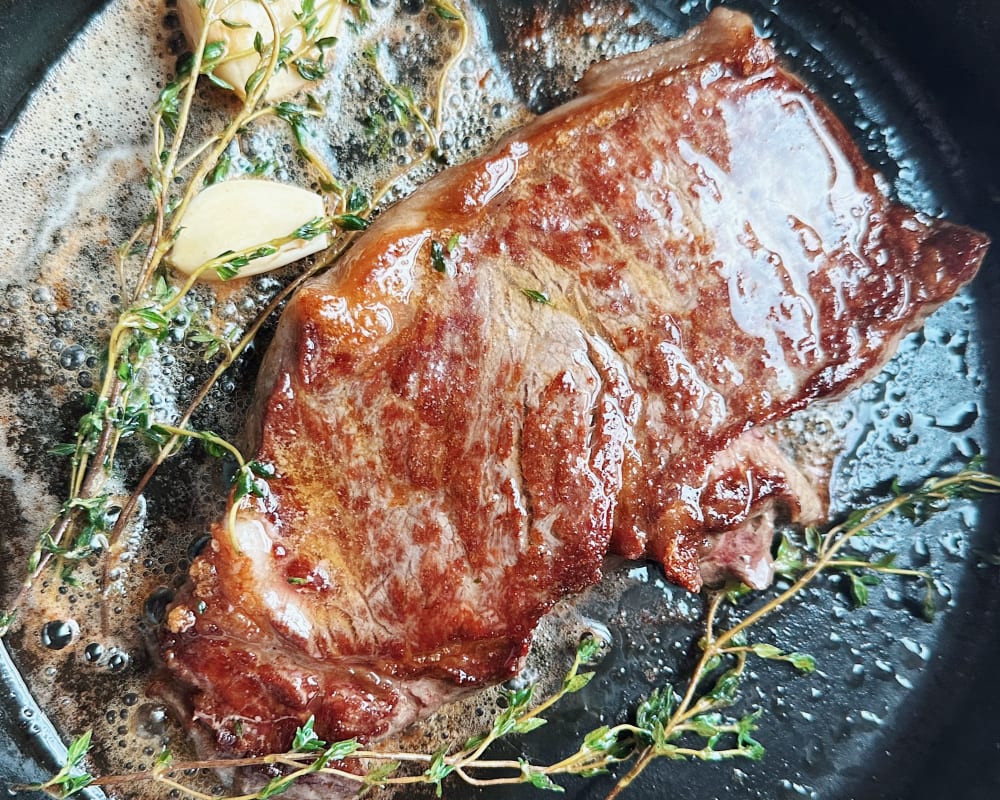Popular Conditions & Diets

The carnivore diet has gained traction because it can temporarily reduce digestive symptoms by eliminating many common triggers. However, experts warn that cutting out all plant foods creates nutrient gaps, compromises gut health, and may increase long-term cardiovascular risk. For most people, the short-term relief doesn’t outweigh the physiological and mental health trade-offs.
When a health practitioner recently suggested I consider the carnivore diet, at least for a short trial, I paused. The pitch was simple: by removing every plant food, from beans to berries, I might quickly reduce bloating and reset my digestion.
At the same time, my social media feeds were full of sizzling ribeye videos and carnivore hashtags promising mental clarity, weight loss, and boundless energy. The diet’s popularity made me curious. But it also made me cautious.
The carnivore diet is exactly what it sounds like: all animal products, no plants. That means red meat, poultry, fish, eggs, and sometimes dairy, while eliminating fruits, vegetables, grains, legumes, nuts, and seeds.
Why it appeals to many:
Lennerz, B. S., Mey, J. T., Henn, L., Miketinas, D. C., & Ludwig, D. S. (2021). Long-term effects of a carnivore diet: A survey of 2029 adults. Current Developments in Nutrition, 5(Supplement_2), 1031. https://doi.org/10.1093/cdn/nzab053_003
O’Connor, A. (2019, December 30). Eat nothing but meat? Maybe not. The New York Times. https://www.nytimes.com/2019/12/30/style/carnivore-diet.html
Ravella, S. (2019). Commentary on restrictive diets and chronic disease prevention. Columbia University Medical Center.
Lead photo by Fran Allen.

A 2021 survey of over 2,000 people on the diet found that many reported less bloating, better mood, and stable blood sugar (Lennerz et al., 2021). For individuals struggling with food sensitivities, carnivore can act like a blunt-force elimination diet, stripping everything back to the basics.
Despite the testimonials, nutrition researchers raise real concerns:
As gastroenterologist Dr. Shilpa Ravella notes, “Eliminating plants removes the very foods we know protect against chronic disease. Any short-term benefits don’t outweigh long-term risks” (O’Connor, 2019).
Here’s where I land: the carnivore diet is trending because people are desperate for solutions. If you’ve battled bloating, fatigue, or autoimmune flares, the promise of quick relief is powerful. And in some cases, under medical supervision, a short trial might provide insight.
But for me, the risks were clear. My practitioner suggested it as a short-term experiment, but I knew my mental health couldn’t withstand the intensity of such a restrictive diet. The absence of variety, the social limitations, and the stress of eliminating every plant-based food felt unsustainable.
In short, I see why some are tempted by carnivore, and I understand the curiosity. But my analysis is that the potential downsides, for gut health, nutrient balance, and mental well-being far outweigh the possible benefits.
To understand what carnivore eating looks like, here’s a simple example, not a recommendation, just context:
Carnivore Breakfast Bowl 2 eggs, scrambled in butter 4 oz grass-fed ground beef, seasoned with sea salt 2 strips of nitrate-free bacon Optional: sprinkle of hard cheese (if tolerated)
It’s filling and protein-packed, but also a clear reminder of what’s missing: the freshness of fruit, the fiber of vegetables, the variety of a balanced plate.
The carnivore diet represents both the promise and the problem of viral health trends. For some, it provides relief from bloating or inflammation. For others, it poses serious nutritional and psychological risks.
Personally, I chose not to try it. Instead, I’m exploring gentler, evidence-based approaches, like low-FODMAP adjustments, probiotics, and mindful eating, that support both my gut and my mental well-being.
P.S. I am not a nutritionist or dietitian. I’m a writer who explores health and nutrition topics. This article reflects my personal analysis and a review of current evidence, and should not be taken as medical advice. Always consult a qualified healthcare professional before making significant dietary changes.